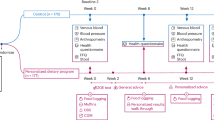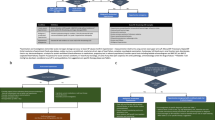Abstract
The self-management education for patients with hypertension has not been widely provided in rural areas of China. Our study aimed to examine the effect of health coaching intervention on controlling BP and improving self-management skills among rural resident of ≤6 month-history of hypertension. A total of 102 participants were enrolled in the RCT. The control group received usual health guidance and follow-up management; the experimental group received health coaching and follow up management. The primary outcomes were the difference in changes of BP and mean self-management scores. The secondary outcomes included waist circumference, body mass index (BMI), and medication literacy. Participants in the experimental group showed a significantly greater improvement with respect to systolic BP and diastolic BP respectively (133.85 ± 4.74 mmHg vs 127.96 ± 5.42 mmHg;80.94 ± 5.52 mmHg vs 77.37 ± 4.44 mmHg, P < 0.05) and BMI (24.66 ± 2.19 kg/m2 vs 23.44 ± 2.05 kg/m2, P < 0.05) compared with the control group. A significant difference was also observed between the experimental and control groups in terms of self-management and medication literacy at both 3 and 6 months (P < 0.05). However, there was no significant difference in changes of waist circumferences between the two groups (22.6% vs 38.8%). In conclusion, for patients with diagnosed with hypertension within the last 6 months, health coaching maybe is an effective approach to control blood pressure and improve medication literacy and self-management skills.

This is a preview of subscription content, access via your institution
Access options
Subscribe to this journal
Receive 12 print issues and online access
$259.00 per year
only $21.58 per issue
Buy this article
- Purchase on Springer Link
- Instant access to full article PDF
Prices may be subject to local taxes which are calculated during checkout



Similar content being viewed by others
References
Cao ZX. Analysis of hypertension prevalence and related influencing factors in a community based on health management. Ji Lin University, China. 2018.
Wang ZW, Chen Z, Zhang LF, Wang X, Hao G, Zhang ZG. Status of Hypertension in China: Results from the China Hypertension Survey, 2012-2015. Circulation. 2018;137:2344–56.
Zhang M, Wu J, Zhang X, Hu CH, Zhao ZP, Li C, et al. Prevalence and control of hypertension in adults in China, 2018. Zhonghua Liu Xing Bing Xue Za Zhi. 2021;42:1780–9.
Hu GQ. Epidemiological investigation and analysis of hypertension in rural population of Shuocheng district correlation between RDW and mortality in CCU patients. Shanxi Medical University, China. 2021.
Olsen JM. Health coaching: a concept analysis. Nurs Forum. 2014;49:18–29.
Park YH, Chang H. Effect of a health coaching self-management program for older adults with multimorbidity in nursing homes. Patient Prefer Adher. 2014;8:959–70.
Lozano P, Houtrow A. Supporting self-management in children and adolescents with complex chronic conditions. Pediatrics. 2018;141:S233–41.
Jin YL. Application of health coaching on patients with primary hypertension in community. Shanxi Medical University, China. 2020.
Duan YL, Zhong ZQ, Ding SQ, Zheng F. Effect of health coaching on rehabilitation efficacy in patients with coronary heart disease. Mod Med J China. 2020;22:6–11.
Pamungkas RA, Chamroonsawasdi K, Charupoonphol P, Vatanasomboon P. A health-based coaching program for diabetes self-management (DSM) practice: A sequential exploratory mixed-method approach. Endocrinol Diabetes Nutr. 2021;68:489–500.
Sua YS, Jiang Y, Thompson DR, Wang W. Effectiveness of mobile phone-based self-management interventions for medication adherence and change in blood pressure in patients with coronary heart disease: a systematic review and meta-analysis. Eur J Cardiovasc Nurs. 2020;19:192–200.
Sidhu MS, Daley A, Jordan R, Sidhu MS, Daley A, Jordan R, et al. Patient self-management in primary care patients with mild COPD—protocol of a randomised controlled trial of telephone health coaching. BMC Pulm Med. 2015;15:16.
Sharma AE, Willard-Grace R, Hessler D, Bodenheimer T, Thom DH. What happens after health coaching? Observational study 1 year following a randomized controlled trial. Ann Fam Med. 2016;14:200–7.
Margolius D, Bodenheimer T, Bennett H, Wong J, Ngo V, Padilla G, et al. Health coaching to improve hypertension treatment in a low-income, minority population. Annu Fam Med. 2012;10:199–205.
Geest SD, Ruppar T, Berben L, Sandra S, Hill MN. Medication non-adherence as a critical factor in the management of presumed resistant hypertension: a narrative review. Eur Interv. 2014;9:1102–9.
Ma L, Wang FL, Li YC, Bi LL. Application of health coaching in self-management of hypertensive patients. Chin Gen Pract. 2020;23:2462–6.
Hou JW, Yang XF, Jiang JP, Li Y, Fan YY, Li LH. Research progress of health coaching and its enlightenment to China chronic disease nursing. J Mudanjiang Med Univ. 2020;41:151–3.
National Basic Public Health Service Hypertension Management Office, Grassroots Hypertension Management Expert Committee. National Guidelines for prevention and management of primary hypertension. Chin Circ J. 2017;32:1041–8.
Liu N, Zhang JG, Yu XF. Development and testing of reliability and validity of self-management scale for patients with hypertension. Chin Nurs Res. 2015;29:1764–7.
Chinese Nutrition Society Obesity Prevention and Control Section. Expert consensus on obesity prevention and treatment in China. Chin J Epidemiol. 2022;43:619–31.
Sauceda JA, Loya AM, Sias JJ, Taylor T, Wiebe JS, Rivera JO. Medication literacy in Spanish and English: psychometric evaluation of a new assessment tool. J Am Pharm Assoc (2003). 2012;52:e231–40.
Shi SJ, Shen ZY, Duan YL, Ding SQ, Zhong ZQ. Association between medication literacy and medication adherence among patients with hypertension. Front Pharm. 2019;10:822.
Li WW, Lew D, Quach L. Efficacy of a culturally and linguistically competent community health coach intervention for Chinese with hypertension. Asian Pac Isl Nurs J. 2020;5:111–9.
Ma L. Application of health coaching in self-management of hypertension patients. Xinxiang Medical University, China, 2019.
Gu DF, Weng JP, Lu XF. Chinese guideline on healthy lifestyle to prevent cardiometabolic diseases. Chin Circ J. 2020;35:209–30.
Fletcher BR, Hartmann-Boyce J, Hinton L, Richard JM. The effect of self-monitoring of blood pressure on medication adherence and lifestyle factors: a systematic review and meta-analysis. Am J Hypertens. 2015;28:1209–21.
Wei HW, Tan J, Wang LQ, Yang KX, Wang Y. Research progress on treatment compliance of patients with hypertension. Chin J Urban Rural Enterp Hyg. 2021;36:55–7.
Thom DH, Willard-Grace R, Danielle H, Denise D, Prado C, Ellen C, et al. The impact of health coaching on medication adherence in patients with poorly controlled diabetes, hypertension, and/or hyperlipidemia: a randomized controlled trial. J Am Board Fam Med. 2015;28:38–45.
Yin R, Yin L, Li L, Silva-Nash J, Tan J, Pan Z, et al. Hypertension in China: burdens, guidelines and policy responses: a state-of-the-art review. J Hum Hypertens. 2022;36:126–34.
Acknowledgements
We thank all the staff of the cardiology department, hypertension wards and hospital outpatient clinic of hospital in supporting of this study. Meanwhile, we acknowledge all the researchers involved in this study who have made this trial possible. Furthermore, we also thank all patients for their participation. The study was approved by the ethics review of the Ethics Review Committee of the Third Xiangya Hospital of Central South University (the reference number 20001). Trial Registration number: ChiCTR2100048430. https://www.chictr.org.cn/showproj.aspx?proj=119541
Funding
This work was supported by the Chia Family Foundation Health Fellowship Program of Yale-China Association [grant numbers 2019-2022]; National Natural Science Foundation of China [grant number 72104251]; Natural Science Research Project for Anhui Universities [grant numbers 2023AH050761].
Author information
Authors and Affiliations
Contributions
LQ and FZ had access to all data in the study and take responsibility for the integrity of the data and the accuracy of the data analysis. LQ, FZ, and JL implemented the intervention; YD was responsible for the guidance of intervention technology; LC and QZ were responsible for collecting the data; LQ was responsible for data analysis and draft of the manuscript; SN and FZ were responsible for critical revision of manuscript for important intellectual content; ZZ and SD were responsible for administrative and material support; FZ were responsible for study supervision.
Corresponding author
Ethics declarations
Conflict of interest
The authors declare no competing interests.
Additional information
Publisher’s note Springer Nature remains neutral with regard to jurisdictional claims in published maps and institutional affiliations.
Rights and permissions
Springer Nature or its licensor (e.g. a society or other partner) holds exclusive rights to this article under a publishing agreement with the author(s) or other rightsholder(s); author self-archiving of the accepted manuscript version of this article is solely governed by the terms of such publishing agreement and applicable law.
About this article
Cite this article
Qiao, L., Li, J., Nam, S. et al. The effect of health coaching on blood pressure control and disease self-management among patients in rural area in China: a randomized controlled trial. Hypertens Res 47, 1184–1195 (2024). https://doi.org/10.1038/s41440-023-01550-1
Received:
Revised:
Accepted:
Published:
Issue Date:
DOI: https://doi.org/10.1038/s41440-023-01550-1
Keywords
This article is cited by
-
Therapeutic intervention exploring hypertensive patients who respond to health coaching behavior modification therapy
Hypertension Research (2024)
-
Original article and review highlighted in this month of Hypertension Research
Hypertension Research (2024)



